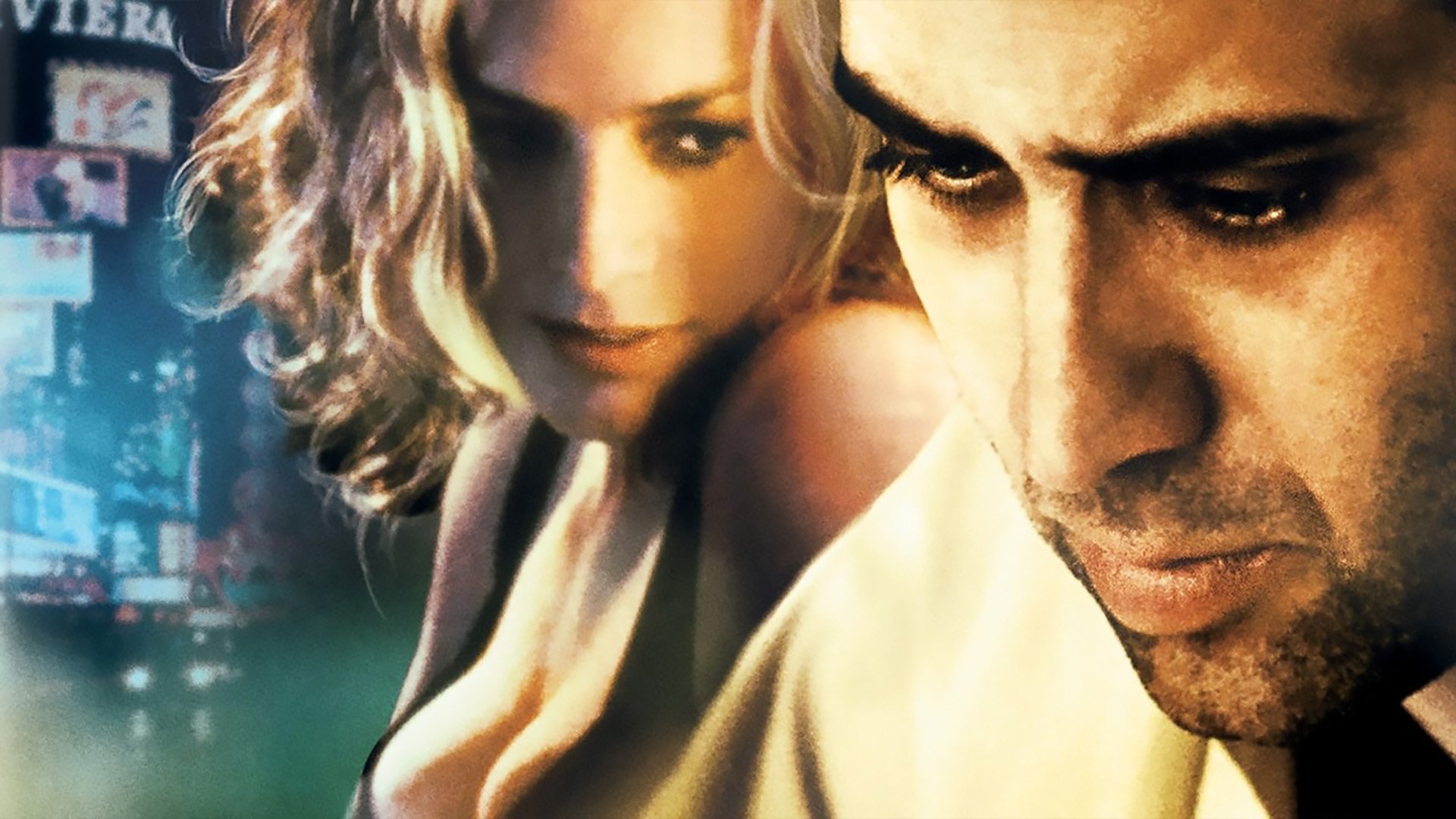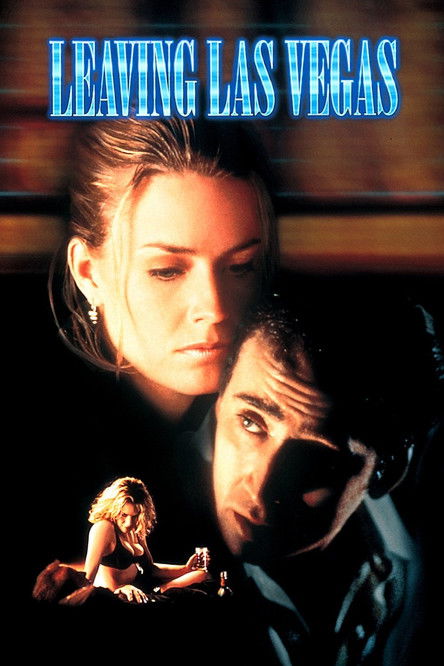
Wuchak@Wuchak
_**Cage terminally drunk in Las Vegas with Elisabeth Shue and lots of jazz/blues**_
An alcoholic in Los Angeles (Nicolas Cage) cashes out of the film industry and moves to Las Vegas to apparently drink himself to death. He meets a prostitute (Elisabeth Shue) with whom he has a welcome affinity and they develop a relationship of radical acceptance.
"Leaving Las Vegas" (1995) is one of those downbeat realistic dramas about lost souls in hopeless dissolution. It’s well-done for what it is and Shue’s beauty is effectively showcased despite the unappealing nature of her profession. And I understand the message of “loving” acceptance with no questions. Although it could be argued that true love refuses to enable people to destroy themselves and holds them accountable to some reasonable degree.
A guy who was my best friend 20 years ago developed an alcohol problem that became increasingly glaring. He died recently, but I didn’t see him for the last four years of his life because I refused to see someone drink themselves to death.
The film runs 1 hour, 51 minutes, and was shot in the Los Angeles area (Burbank & Santa Monica) and Nevada (Las Vegas, Laughlin & Paradise).
GRADE: B-/C+

Filipe Manuel Neto@FilipeManuelNeto
**A dense film, difficult to see, but one that should be seen, especially by young people who think that getting drunk is relevant to a night of fun.**
This film is based on the true story of a man who lost his will to live after a complicated divorce and the end of his personal and professional life as he gave way to alcohol addiction. With no prospects of getting back on top, he decides to go to Las Vegas, the city of all sins in the USA, and drink everything he can until he ends his own life. In the meantime of these suicidal intentions, he meets a prostitute with whom he has a very complicated relationship because, deep down, she too walks her own path of self-destruction.
The film is excellent, but it is deeply heavy, depressing, difficult to watch. In addition to taking us to the most negative and destructive side of alcoholism, it also shows us, without fear of shocking, how it can lead to death. That is, it shows us in very hard colors that drinking is an addiction, it is a serious problem and it can kill. It makes it clear that alcohol is not something that we can or should relativize, a punctual, occasional excess on Friday night. It is not something we should tolerate in the behavior of our children or family members. I say this at a time when drinking has become all too common, especially among young people, for whom getting drunk is a “sine qua non” condition for a night of fun. Anyone going to work the next morning can easily see young people, many of them women and looking as if they are not even 20 years old, sitting on the side of the sidewalk, next to nightclubs or bus stops, drunk or vomiting in scenes worthy of a pity that I refuse to feel because, after all, they wanted to stay that way. Many are Portuguese, but there are also many tourists who seem to come to my country because the law is more permissive than it should be. For me, who was brought up on the danger of addiction and only got seriously drunk once, it pains me to see how this youth considers excess fundamental in fun and I just hope, one day that I'm a father, I never have to go get one. child in such a state. I would be ashamed.
This is one of the movies that made Nicholas Cage's career. The actor does a remarkable job, and if we think about the turn that his life and career would later take, it's really a shame that he couldn't maintain this level. It's hard to see the way he gives his character all the elements to capture our sympathy as she slides down a path of no return. Elizabeth Shue, who gave life to the prostitute, also does a job full of merits, even if her character is much more conventional. After all, it is not the first time, nor the last, that the cinema has met a prostitute with feelings. There is a love story between the two characters, that is undeniable, but we can question to what extent it is really believable, since love is never used to redeem or grant the characters a path of salvation, a way out of the life of addiction and destruction they are in. And to some extent, even if this is rehearsed, such an option is largely rejected, especially by the character of Cage, who seems determined to die.
Technically, the film has several points of merit, especially with regard to cinematography and editing. The film was very well filmed, it uses light and shadow very well to thicken the whole environment of degradation in which the characters move, with the bright lights of the casinos working, almost, like the bright flame that attracts the moths to their death and perdition. It is in this environment that we see the characters live the only scenes of pleasure and relaxation, which only serve to keep pushing them to the bottom of the well. Very well edited, the film doesn't waste time with things that don't matter, it maintains a very pleasant pace and provides two hours that leave us thinking.

CinemaSerf@Geronimo1967
Is there any profession portrayed in cinema more likely to be an obnoxious alcoholic than an Hollywood screen writer? Well that's what "Ben" (Nicolas Cage) is and when he gets fired after one too many absences and foul-mouthed outbursts, he takes his redundancy cheque and his BMW and heads to Vegas. He doesn't have a plan, except perhaps to drink himself into a stupor from which he won't wake up. Meantime, we've met hooker "Sera" (Elisabeth Shue) who has a rather brutal relationship with her flaky pimp "Yuri" (Julian Sands) and works the Strip looking for high rollers to seduce. They meet in a casino and quickly conclude that there might be an element of safety, certainly sanity, in numbers and are soon living together platonically. What now ensues illustrates the perils for both as they continue down paths that seem destined to lead to self-destruction. "Sera" exposing herself to dangers every time she goes to work whilst "Ben" showers with two bottles of vodka to contain his increasingly dominant shakes. The soundtrack does much to help set the mood here, as these two people gradually fall in love - but it's not a sentimental love. It comes across more as a growing inter-dependency fuelled by affection and a desire to look out for each other - however doomed to failure we might anticipate that to be. Cage is on great form here, he really does carry of the role skilfully and plausibly - but I think Shue takes more of the plaudits for me. She allows her essentially quite decent character to thrive and to grow, demonstrating quite a degree of humanity even when faced with brutality and humiliation on a fairly regular basis. She also manages to give us a sense of a woman who is trying to escape but just doesn't know how. Mike Figgis keeps the pace taut and effective and with both on solid form with an actually quite emotional story, this is well worth two hours.

